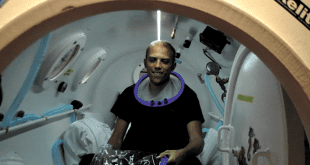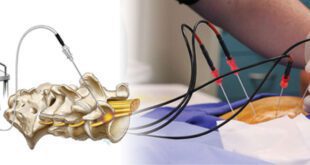By Resham Datta, M.D.
 Hippocrates, the father of modern medicine, has been quoted to say “Let food be thy medicine.” In our modern medicinal age, however, we rely on pills to cure our ailments. Per the Center for Disease Control and Prevention, the amount of opioid prescriptions dispensed has quadrupled since 1999, but the amount of pain that Americans report remains unchanged. Imagine that – despite four times the amount of pain medications, Americans are still in the same amount of pain. While pain medication is often necessary and appropriate when correctly prescribed, there are certainly additional causes (and treatments!) for chronic pain.
Hippocrates, the father of modern medicine, has been quoted to say “Let food be thy medicine.” In our modern medicinal age, however, we rely on pills to cure our ailments. Per the Center for Disease Control and Prevention, the amount of opioid prescriptions dispensed has quadrupled since 1999, but the amount of pain that Americans report remains unchanged. Imagine that – despite four times the amount of pain medications, Americans are still in the same amount of pain. While pain medication is often necessary and appropriate when correctly prescribed, there are certainly additional causes (and treatments!) for chronic pain.
To recognize how inflammation can affect pain, one must understand the mechanisms of pain transduction. When cells are injured, they release sensitizing chemicals that activate our nerves to send pain signals towards the brain. Traditionally, these chemicals were thought to be released only when cells suffered a cut, a burn or chemical injury. New research, however, demonstrates that high levels of inflammation can activate our pain signaling as well! More and more, studies are demonstrating that chronic pain is immunological in nature, and due to inappropriate nerve signaling, rather than the initial injury.
Our immune systems are essential for our overall wellbeing and the ability to fight off diseases and inflammation, and the foods we eat can help put us into an anti-inflammatory or pro-inflammatory state. Many foods that contain chemicals, excessive salt, and sugar can cause inflammation to occur in the body. When the body is inflamed, it can intensify disease states, and it can also create a great deal of pain, especially in the joints, neck, and spine. If you suffer from chronic pain from migraines, arthritis, or back pain, to name a few, you should consider changing your diet.
Speaking to an expert physician like Dr. Datta, a board-certified Anesthesiologist and Pain Specialist, is best. Along with medical intervention, Dr. Datta will guide you through which diet is best for you specifically based on your symptoms and disorders.
Nutritional Tips
Shopping the periphery of the grocery store is a great way to avoid all of the processed foods, excessive sugar, and salt in the center isles, which are full of toxic chemicals that cause inflammation. Foods with a high-glycemic index, high in omega-6 fatty acids, or trans-fatty acids are particularly prone to increasing systemic inflammation. On the other hand, foods rich in omega-3 fatty acids, magnesium, potassium, phenolic compounds (in extra-virgin olive oil) and butyrate/athocyanins (in fruits and vegetables) are anti-inflammatory. For the most part, you should focus your shopping efforts on fresh produce, and limit your intake of meat and dairy.
Eating whole foods provides essential nutrients for overall health, which can significantly reduce and alleviate inflammation — eating plenty of vegetables, fruit, healthy fats, and lean protein (especially cold-water fish) while avoiding excess salt, sugar, simple carbs and saturated fats. Eating this way is thought to prevent inflammation and alleviate pain by flooding the heart, brain, and entire body with antioxidants, and the good fats that it needs to function correctly. Excessive sugar, simple carbohydrates, processed foods, and chemicals are known to cause inflammation and degeneration; if you want to live an optimal, healthy life and age well without chronic pain, a proper diet is instrumental in getting you there.
When you shop, check the labels on your food, and if you are buying processed, convenient foods, invest in healthier low-sodium versions. If you’re eating at a restaurant, ask for sauces or condiments on the side, and use sparingly. Also, order steamed vegetables, lean meat, and in general, make wise choices.
It’s not a diet, it’s a change in your lifestyle to age well, free from inflammation-induced pain, as natural, whole foods are delicious. Giving your body the chance to try a whole-food approach to eating is a good idea for all.
Resham Datta, M.D.
Board Certified Anesthesiologist
Interventional Pain Management
Dr. Datta is a board-certified Anesthesiologist and fellowship-trained pain medicine physician who trained at the Mayo Clinic, Memorial Sloan Kettering Cancer, Weill Cornell, and Hospital for Special Surgery before joining Florida Medical Clinic. She has been published in peer-reviewed journals, authored chapters in medical textbooks, and continues her research in inflammation and pain medicine.
Dr. Datta has cared for patients both inside and outside of the operating room and has witnessed firsthand the detrimental effects of long-lasting pain. She specializes in new and wide-ranging techniques to treat pain of the back, neck, chest, breast, muscles, and joints.
Chronic pain is a complex and multifaceted symptom that can be caused by many different structures or systems within our bodies. Living with it is an undue burden that no one deserves. Given its complexity, management of this pain requires an even stronger multidisciplinary approach. Dr. Datta believes that pain management must be comprehensive, patient-centered, and constantly evolving to fit the patient’s needs. The good news is that there are an ever-growing number of tools available to combat this pain. Chronic pain is troublesome and tough; however, a strong patient and physician team, can be tougher.
Florida Medical Clinic
Zephyrhills
Eiland Multi Specialty Campus
36763 Eiland Blvd., Suite 201
Zephyrhills, Florida 33542
813.788.0570
 Central Florida Health and Wellness Magazine Health and Wellness Articles of the Villages
Central Florida Health and Wellness Magazine Health and Wellness Articles of the Villages



